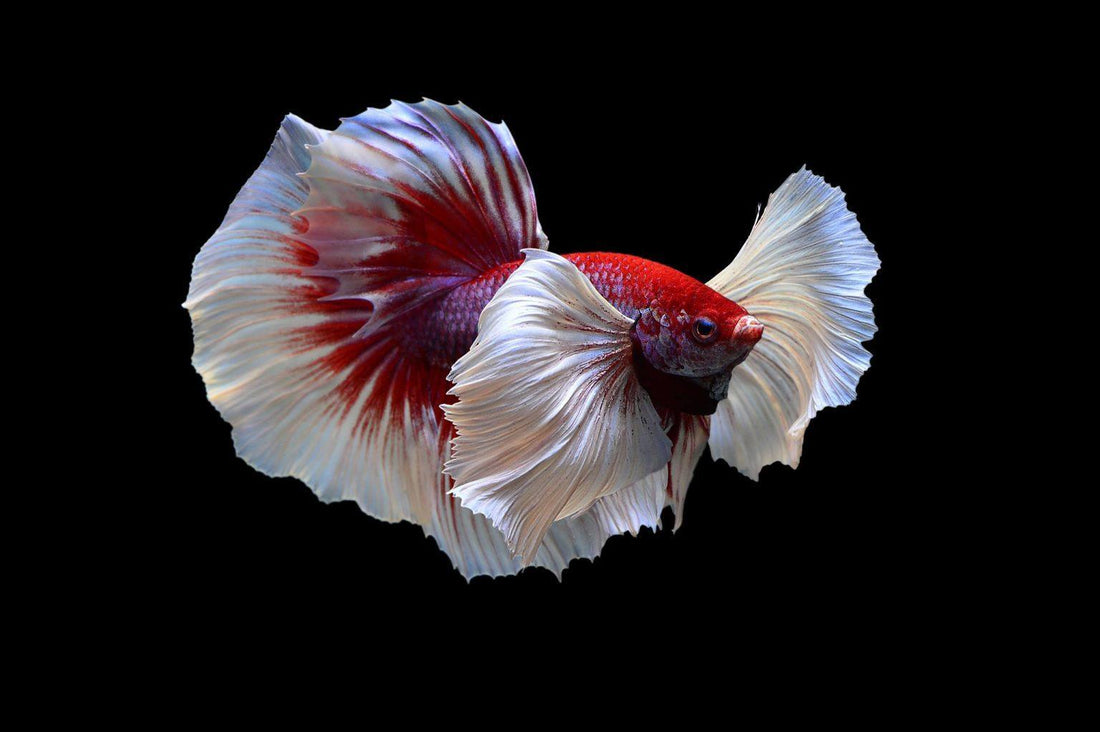How Long Betta Can Live?

Overview

Betta fish, also known as Siamese fighting fish, are small, colorful, and hardy fish that are popular pets. They are native to the shallow, slow-moving waters of Southeast Asia such as Thailand, Vietnam, Malaysia,... where they live in rice paddies, streams, and ponds. In captivity, betta fish are relatively easy to care for, but it's important to provide them with the proper conditions to ensure their health and well-being.
The Lifespan of Betta Fish
Betta fish have an average lifespan of 2 to 4 years when kept in optimal conditions. However, some bettas have been known to live up to 5 years or even longer (giant betta fish) with exceptional care. Understanding their typical lifespan is crucial for betta enthusiasts to provide the best possible living environment for their aquatic companions.
Factor That Influence Betta Fish Lifespan
Several factors play a significant role in determining how long your betta fish will live. These include water quality, tank size, diet, genetics, and overall care.
Water quality
Maintaining clean and stable water conditions is essential for Betta fish health. Betta fish require a specific pH range (6.0-7.5), water temperature (76-82°F), and water hardness (5-20 dGH) to thrive. Regular water changes, using a high-quality water conditioner, and testing the water regularly can help ensure optimal water quality.
Diet

Betta fish are carnivores and require a balanced and varied diet, with regular feeding, to maintain their health and energy levels. A diet of high-quality, protein-rich dried or frozen foods, such as bloodworms, brine shrimp, or daphnia, is recommended. Live foods, such as live black worms or brine shrimp, can also be fed, but should be used sparingly to avoid overloading the water with waste.
Environment

Betta fish benefit from a suitable tank environment, with appropriate lighting, hiding places, and plenty of space to swim and explore. A tank of at least 5 gallons is recommended, with plenty of plants, rocks, caves, and other structures to provide hiding places and a sense of security.
Stress
Betta fish are sensitive to stress, and a peaceful environment, free from aggressive tank mates and sudden changes, can help reduce stress and promote good health. It's also important to avoid overcrowding and handle the fish gently and minimally to minimize stress.
Health
Regular monitoring of the Betta fish's health and behavior, including the appearance of its fins and scales, can help detect any potential health issues early on. Seeking veterinary care, as needed, can help address any health problems and prolong the fish's lifespan.
Genetics

Genetics also play a role, as some bettas such as giant Betta may have inherited health conditions or shorter lifespans. In fact, giant betta can live up to seven years and grow up to seven inches long.
Conclusion
By providing proper care and a suitable environment, you can help ensure the health and well-being of Betta fish and maximize their lifespan. Regular monitoring, regular water changes, and a balanced diet are essential for maintaining a healthy Betta fish.
No comments











0 comments